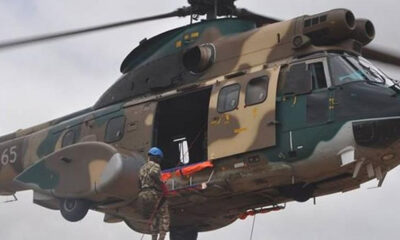metro
‘We’re beggars in Ibadan because bandits, terrorists killed our husbands in the North’
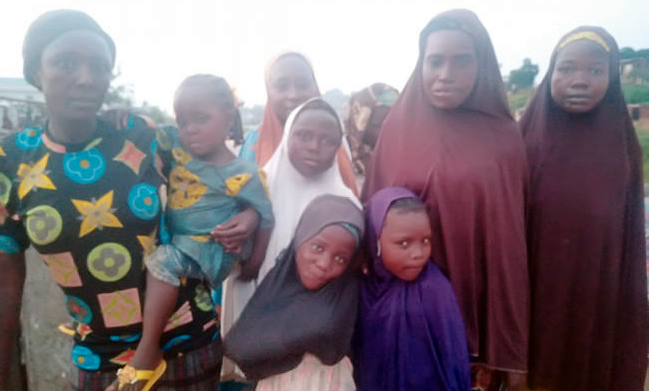
AISHA Ibrahim is a young woman but she appears to have the weight of the world sitting on her shoulders. She had great plans for her life but fate had something else in store for her.
She is one of several women from the Northern part of the country who are taking an exhausting walk through life in Ibadan, the Oyo State capital. They had been forced to embark on unexpected journeys southwards after being dealt cruel fates by Boko Haram terrorists back in their home states. This writer caught up with some of these women. Some of them shared their pathetic stories.
For Aisha, the nightmare which has now become her life started on a dark night in Makasara in Kachia Local Government Area of Kaduna State, a place she, her husband, father and siblings had thought would provide a safe haven for them. They had relocated to Kaduna State to escape the ceaseless strife which was making life difficult for them in Katsina State.
One day, marauders came, brandishing weapons and shooting into the air. They were unprepared for the midnight invasion of their village. The invaders left in their trail, blood and sorrow.
READ ALSO:
- Osun govt to conduct integrity tests on ‘model schools’ built by Aregbesola
- BREAKING: Man confesses to killing Vanguard reporter, Tordue Salem
- Nigeria, others to get malaria vaccine by first quarter of 2022 –AHM
- FG: Fuel Subsidy to Go in Second Half of 2022
Houses were set ablaze, farmlands were destroyed, cattle were rustled and many villagers were killed. Among the dead were Aisha’s father and husband, Ibrahim. The village became desolate; life became difficult for the survivors, having been stripped of their livelihoods. The invaders had rustled their cattle and laid waste their farmlands. At 35, Aisha, the first of the five children of her parents, had to find a means of survival and thus began her journey to Ibadan, the Oyo State capital.
In pursuit of a better life, Aisha had left her once-peaceful home alongside several other women. She boarded a truck to a destination unknown.
“It was just God that brought me here. When I left, I had no idea where I was going to. I met other women like me at the park and I joined them and here I am today,” she said.
Prior to her journey to the South West, Aisha was happily married. “I was living with my husband in Makasara in Kaduna State when bandits killed him. God had not blessed us with a child. I had to leave. I came in company with other women. I don’t have an idea how my siblings are doing. I don’t know whether they have found a way around life or if they are dead,” she told Saturday Tribune.
For Rukkaya Bello, her once peaceful nomadic life was cut short in Borno State when Boko Haram fighters invaded their settlement in Doron Baga in Baga Local Government Area of the state about three years ago. The havoc done by the terrorists had left her widowed and homeless. “I came here about a year ago. It was a year last month since I came to Ibadan,” she said.
Rukkaya narrated her ordeal and how she found her way to Ibadan. “I don’t have any children anymore. Boko Haram killed all my seven children and my husband. They rustled our cattle and abducted my daughters-in-law. I have no one left; it is just me and God. I didn’t have female children; my kids were all boys but Boko haram shot and killed them all. I was all alone and lonely, so I came here. God brought me here. After they killed our husbands and male children, they left a lot of women in the bush. We couldn’t stay in the bush without our cattle so we had to move to town.
“We were moving around with our cattle when the gunmen followed us into the bush. They killed all the men and the boys. The Boko Haram men offered them bombs and guns to attack people in another town but they refused. The Boko Haram then killed them because they would not join their cause.
“If they had accepted to be part of them, they could have been alive today but I would rather my sons are dead than living as Boko Haram terrorists. After killing our husbands and children, they said we, the mothers, could go. We headed in different directions but God brought me here. We take all that has happened as the will of God,” Rukkaya said.
Aisha and Rukkaya are among several women with similar stories begging on a bridge in the Ojoo area of Ibadan under harsh and unhealthy conditions. These women, together with their children, survive mainly on alms and food given to them by people of goodwill. “God usually sends Yoruba people to give us food, money and clothes,” Aisha said.
As a way of preserving some of the cooked food they get, these women spread the leftovers on the bridge to allow them dry after they have had enough to eat. They told Saturday Tribune that they re-cook the dry foods at home. “We understand the value of food, so in order to avoid any waste, we dry the foods here then we wash and re-cook them when we get home.”
The question of menstrual hygiene is far from routine for these women. According to Aisha, they use rags for sanitary towel. They lack other essentials to maintain a good hygiene.
“We don’t find joy in sitting by the roadside but we don’t know what else to do. If we stay at home, who will provide for us? We could not even have chosen to stay back in the North because the gunmen continued to lay siege to our homes both during the day and at night,” Indatu Abdullahi another of them said.
These women come out to beg under the sun and in the rain to ensure survival for themselves and their children. For some of them, they still shoulder the responsibilities of their children and relatives back home.
For Zainab Aliyu, she still caters for her mother and her 11 children after her husband was killed by bandits five years ago in Funtua, Katsina State.
“Two of the children are taking care of my mother who has been bedridden as a result of the injury she sustained during the attack in which my husband was murdered. Three are with my in-laws and I have the remaining six with me. So, the little money we get from begging, I send it home for them to feed as well,” Zainab said.
As harrowing as their stories are, the women expressed the hope that one day, things would get better; the government would be more responsive and they would return home and be reunited with their families.
Tribune
metro
Notorious cultist, Pelele, gunned down in Rivers
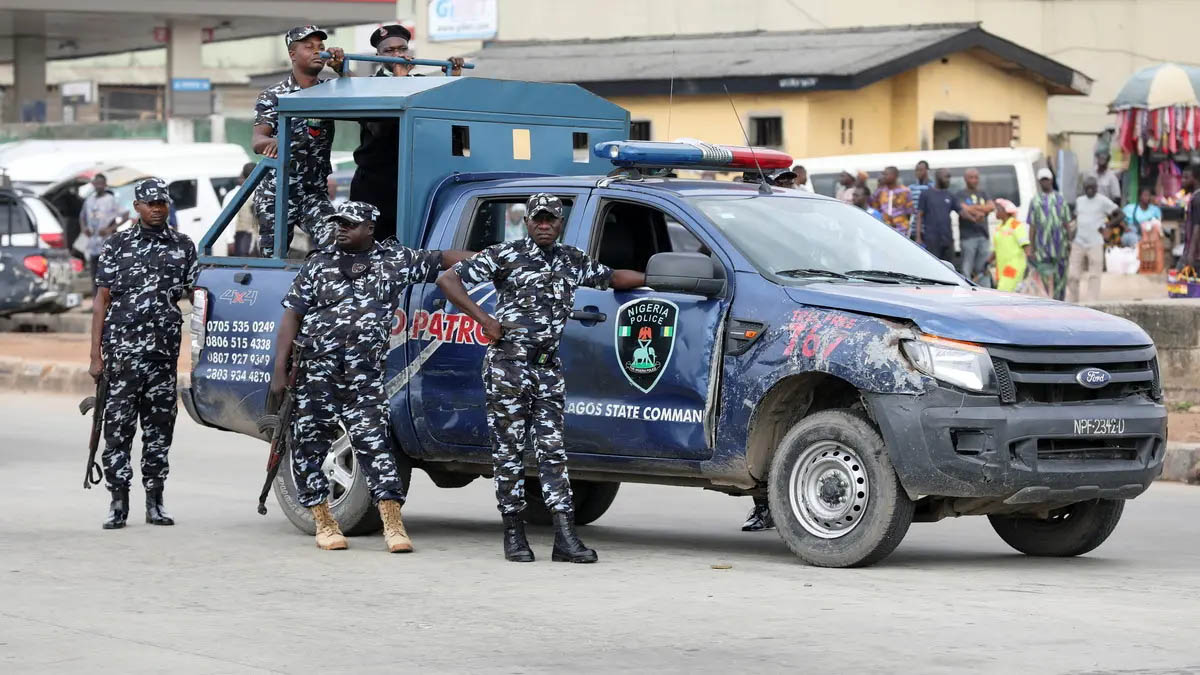
Notorious cultist, Pelele, gunned down in Rivers
Operatives of the Rivers State Police Command have successfully neutralized a suspected cultist and kidnapper, Gbarani Bume, popularly known as Pelele, in Luawii Community, Khana Local Government Area.
Bume, a reportedly known member of the Iceland cult group, had allegedly been terrorizing the Beree/Tabaa area of Khana LGA alongside his gang.
The Command’s Public Relations Officer, Grace Iringe-Koko, confirmed the incident in a statement released in Port Harcourt on Sunday.
According to Iringe-Koko, the police acted on intelligence that Pelele and his gang were attempting to abduct a site engineer in Luawii. Upon arrival, the operatives were met with gunfire from the suspects. In the ensuing shootout, Pelele sustained fatal injuries and later died, while his accomplices fled with gunshot wounds.
READ ALSO:
- Court stops police from arresting 68 Obaseki’s allies
- 26 dead, 59 missing as Israel hits Gaza, Lebanon in deadly strikes
- Court stops NBC from imposing fines on broadcast stations
The statement reads: “The Rivers State Police Command has made a significant breakthrough in its efforts to combat crime, neutralising a notorious cultist and kidnapper, Gbarani Bume, a.k.a. Pelele, a native of Bere Community in Khana LGA.
“He was a member of the Iceland Cult Group, which has been terrorising the Beree/Tabaa axis of Khana LGA.
“On the 15th of November 2024, operatives from the Bori Division, acting on a tip-off, were mobilised to Luawii Community where Pelele and his gang were attempting to kidnap a site engineer.
“Upon sighting the operatives, the hoodlums opened fire, resulting in a fierce crossfire, during which Pelele was fatally wounded. His accomplices escaped with various degrees of bullet wounds.
“Items recovered from the suspect include one AK-47 rifle, two magazines, and 10 rounds of live ammunition.”
She further stated that investigations are ongoing to track down the fleeing gang members, emphasizing the Command’s commitment to tackling crime and enhancing public safety in the state.
Notorious cultist, Pelele, gunned down in Rivers
metro
Court stops police from arresting 68 Obaseki’s allies

Court stops police from arresting 68 Obaseki’s allies
metro
26 dead, 59 missing as Israel hits Gaza, Lebanon in deadly strikes
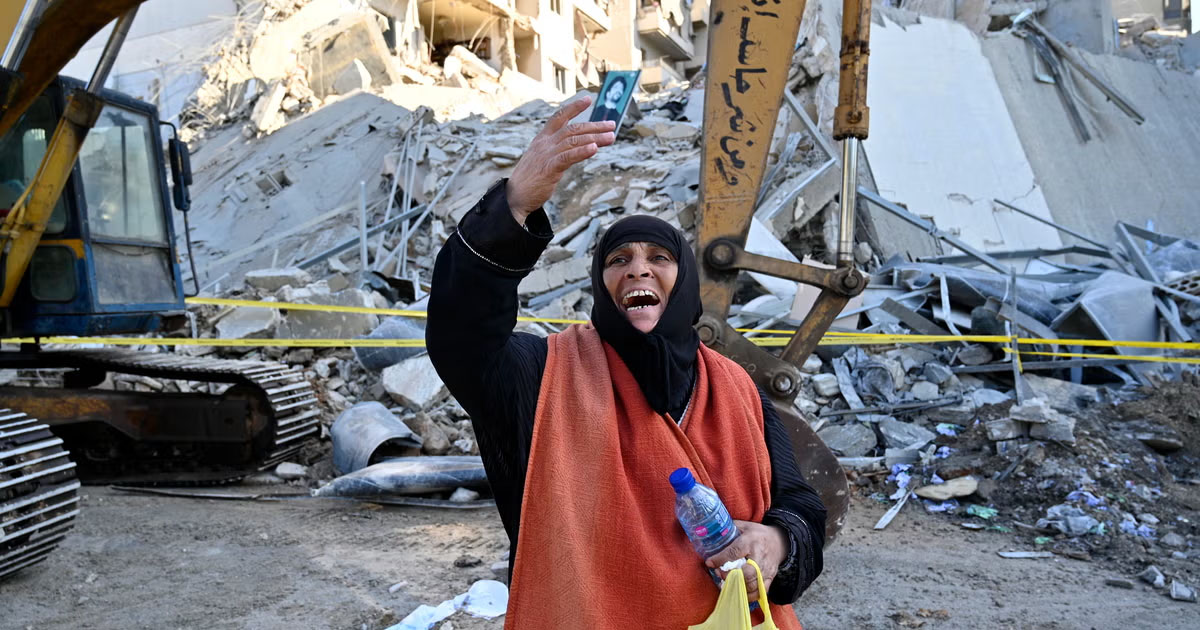
26 dead, 59 missing as Israel hits Gaza, Lebanon in deadly strikes
Strikes by the Israel military killed dozens in Gaza on Sunday, the civil defence said, while also hitting a Hezbollah stronghold near Beirut’s international airport.
Israel has been fighting on two fronts since September, intensifying attacks on Lebanon’s Iran-backed Hezbollah after nearly a year of cross-border clashes alongside its war on Hamas in the Gaza Strip.
A year after the Gaza war was triggered by Hamas’s October 7 attacks on its south, Israel vowed to stop the Islamist militants from regrouping in the north of the Palestinian territory, launching a major assault there.
In the latest violence in the besieged Palestinian territory, the civil defence agency said Israeli air raids killed at least 46 people.
The deadliest strike, in the middle of the night in Beit Lahia in the north, killed 26 people, including women and children, and left at least 59 others buried under the rubble, said civil defence spokesman Mahmud Bassal.
Another strike killed 10 people in the Bureij refugee camp in central Gaza, where a separate strike on a house claimed the life of a woman, he said.
An Israeli drone strike killed five people in the southern city of Rafah, Bassal said, adding another strike killed three women and a child in the Nuseirat camp.
Hamas-run Gaza’s health ministry on Sunday said the overall death toll in more than 13 months of war had reached 43,846.
The majority of the dead are civilians, according to ministry figures, which the United Nations considers reliable.
READ ALSO:
- Court stops NBC from imposing fines on broadcast stations
- Agbede urges Baruwa to congratulate MC Oluomo, in spirit of sportsmanship
- Tinubu confers GCON on Indian PM, Modi
Hamas’s October 7, 2023 attack that sparked the war resulted in the deaths of 1,206 people, mostly civilians, according to an AFP tally of Israeli official figures.
– Lebanon rescuers mourned –
On Israel’s second front in the north, AFPTV footage showed several strikes hit Hezbollah’s south Beirut stronghold, shortly after the Israeli military warned people to evacuate.
Columns of smoke were seen rising over the capital’s southern suburbs, where Lebanon’s only international airport is located.
Further south, overnight Israeli air strikes and shelling hit the flashpoint town of Khiam, the Lebanese state-run National News Agency reported.
Following the bombardment, the Israeli army said about 20 projectiles were seen crossing from Lebanon into Israel, and that some of them were intercepted. Emergency services did not immediately report any casualties.
Israel has escalated its bombing of Lebanon since September 23 and has since sent in ground troops, following almost a year of limited, cross-border exchanges of fire begun by Hezbollah militants in support of Iran-backed Hamas in Gaza.
Its military on Saturday said Hezbollah had already “paid a big price”, but vowed to keep fighting until tens of thousands of Israelis displaced from the north can return home.
Israeli forces also shelled the southern area of Lebanon along the Litani River, the NNA said on Sunday.
The news agency had earlier reported strikes on the southern city of Tyre, including in a neighbourhood near UNESCO-listed ancient ruins. Israel’s military said late Saturday it had hit Hezbollah sites in the area.
In Lebanon’s east, the health ministry said an Israeli strike in the Bekaa Valley killed six people including three children.
Hezbollah said it fired a guided missile that set an Israeli tank ablaze in the southwestern Lebanese village of Chamaa.
READ ALSO:
- [UPDATED] [Breaking] APC’s Lucky Aiyedatiwa wins Ondo governorship election
- UK introduces new visa for senior, specialist workers in multinational companies
- Ondo election: Again, INEC shifts collation of results to noon
In eastern Lebanon, funerals were held for 14 civil defence staff killed in an Israeli strike on Thursday.
“They weren’t involved with any (armed) party… they were just waiting to answer calls for help,” said Ali al-Zein, a relative of one of the dead.
– Gaza famine alert –
Lebanese authorities say more than 3,452 people have been killed since October last year, with most casualties recorded since September.
Israel announced the death of a soldier in southern Lebanon, bringing to 48 the number killed fighting Hezbollah.
A UN-backed assessment on November 9 warned famine was imminent in northern Gaza, amid the increased hostilities and a near-halt in food aid.
Israel has pushed back against a Human Rights Watch report this week alleging that its mass displacement of Gazans amounts to a “crime against humanity”, as well as findings from a UN Special Committee pointing to warfare practices “consistent with the characteristics of genocide”.
A foreign ministry spokesman dismissed the HRW report as “completely false”, while the United States — Israel’s main military supplier — said accusations of genocide “are certainly unfounded”.
In Israel, police said they arrested three suspects after flares shot near the home of Prime Minister Benjamin Netanyahu in the central city of Caesarea, south of Haifa, while he was away.
Demonstrators in Tel Aviv on Saturday reiterated demands that the government reach a deal to free dozens of hostages still held in Gaza.
The protest came a week after mediator Qatar suspended its role until Hamas and Israel show “seriousness” in truce and hostage-release talks.
26 dead, 59 missing as Israel hits Gaza, Lebanon in deadly strikes
-

 Sports3 days ago
Sports3 days agoBREAKING: Super Eagles qualify for AFCON 2025
-

 metro1 day ago
metro1 day agoSouth-West NURTW: Why we chose Oluomo over Baruwa
-

 Aviation3 days ago
Aviation3 days agoDisaster averted as bird strike hits Abuja-Lagos Air Peace flight
-

 metro2 days ago
metro2 days agoCourt orders varsity to pay lecturer N40m compensation for wrongful dismissal
-

 Opinion2 days ago
Opinion2 days agoApomu king turns warmonger for PDP
-

 Politics2 days ago
Politics2 days agoOndo poll: Three gov candidates withdraw for Aiyedatiwa
-

 News3 days ago
News3 days agoEdo Gov Okpebholo freezes govt accounts, reverses ministry’s name
-
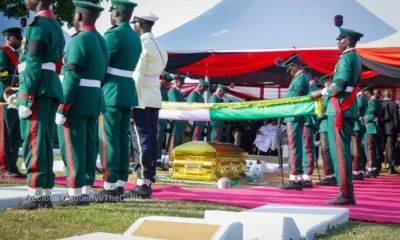
 News2 days ago
News2 days agoLate COAS Lagbaja gets CFR honour, buried amid tributes











